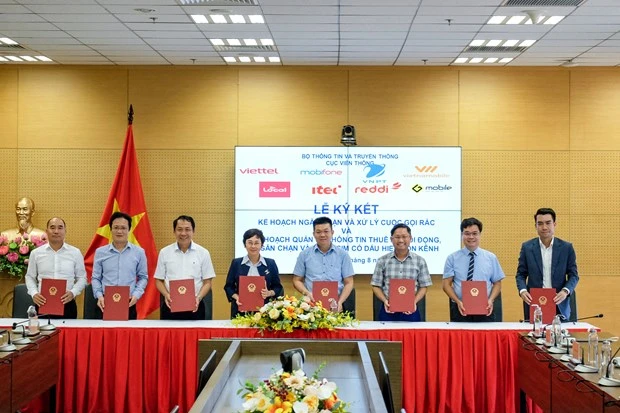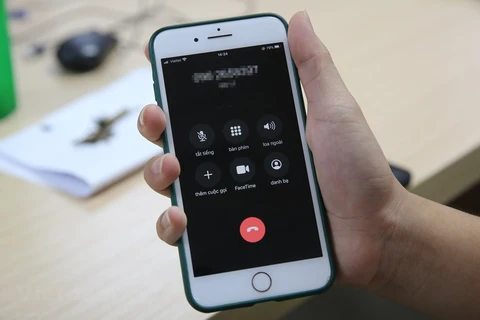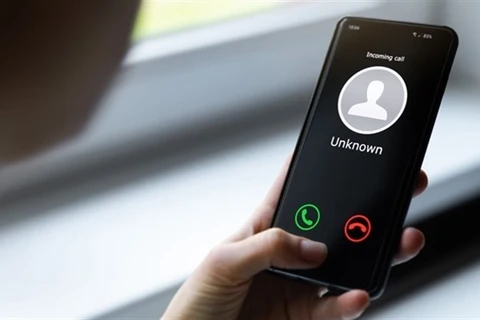
Hanoi (VNA) – Vietnamese mobile network operators Viettel, VNPT, MobiFone, Vietnammobile, Local, Reddi, Itel, and GMobile will make a concerted effort to stop spam calls under an agreement signed in Hanoi on August 29.
The signing was hosted by the Vietnam Telecommunications Authority (VNTA) at the Ministry of Information and Communications (MIC). The deal outlines a plan to handle and block spam calls, better manage mobile subscribers’ information, and keep inactive SIM cards under control.
According to the VNTA, it has held meetings with the eight cellular service providers to review and improve anti-spam call processes. This has paved the way for a joint operation by regulators and cellular companies to fight spam calls.
VNTA Director General Nguyen Hong Thang said it is crucial to engage mobile subscribers in the fight against spam calls in addition to regulators and service providers.
It is right for subscribers to complain about spam calls, but when mobile carriers send messages checking if the call they have received was spam, the response rate is meagre, Thang said, noting that this makes it harder for the carriers to identify the sources of the spam calls.
Technical solutions alone are not enough to stop the spam calls, he continued, adding user responses provide a basis for the carriers to detect and block spam callers.
It must be mobile users’ responsibility to give feedback and join hands with regulators and carriers to tackle this issue, the official emphasised.
Deputy Minister of Information and Communications Pham Duc Long spoke highly of the VNTA and cellular companies for their active coordination in coming up with the plan in such a short period, saying unwanted calls have remained a problem in Vietnam for a long time and their existence can lead to other issues, including scam calls.
 Deputy Minister of Information and Communications Pham Duc Long delivers a remark at the signing ceremony. (Photo: VietnamPlus)
Deputy Minister of Information and Communications Pham Duc Long delivers a remark at the signing ceremony. (Photo: VietnamPlus) Long noted that many users still need information from marketing calls, and firms have legitimate rights to telemarketing. He said that telemarketing subscribers must be authenticated, and if the calls they make are verified, they are no longer spam.
He unveiled that the VNTA and MIC inspectors will closely examine the criteria for filtering and blocking suspected spam callers in the time to come. After a suspicious call ends, users will receive a message from their carriers to confirm if it is spam, he said.
It is users themselves to decide who are junk subscribers making scam calls, and carriers will block these subscribers based on that, Long said.
The official commented on strengthening the management of mobile subscribers and inactive SIM cards, dubbed “sleeping”.
He said these are pre-activated SIM cards with correct identity information, but they have not been used and potentially become junk ones. As a result, they are idling to be sold to users, the deputy minister stated.
The VNTA and carriers must take measures to manage these SIM cards to prevent them from being turned into ones for advertising, even for fraudulent schemes.
There are a set of criteria for the detection of “sleeping” SIM cards, which will be constantly revised and improved by the VNTA and telecom service providers.
At a conference last year, Minister of Information and Communications Nguyen Manh Hung demanded the telecom sector end what is called “telecom junks”, including junk SIM cards and spam calls, text messages, and emails, right in 2022./.





















